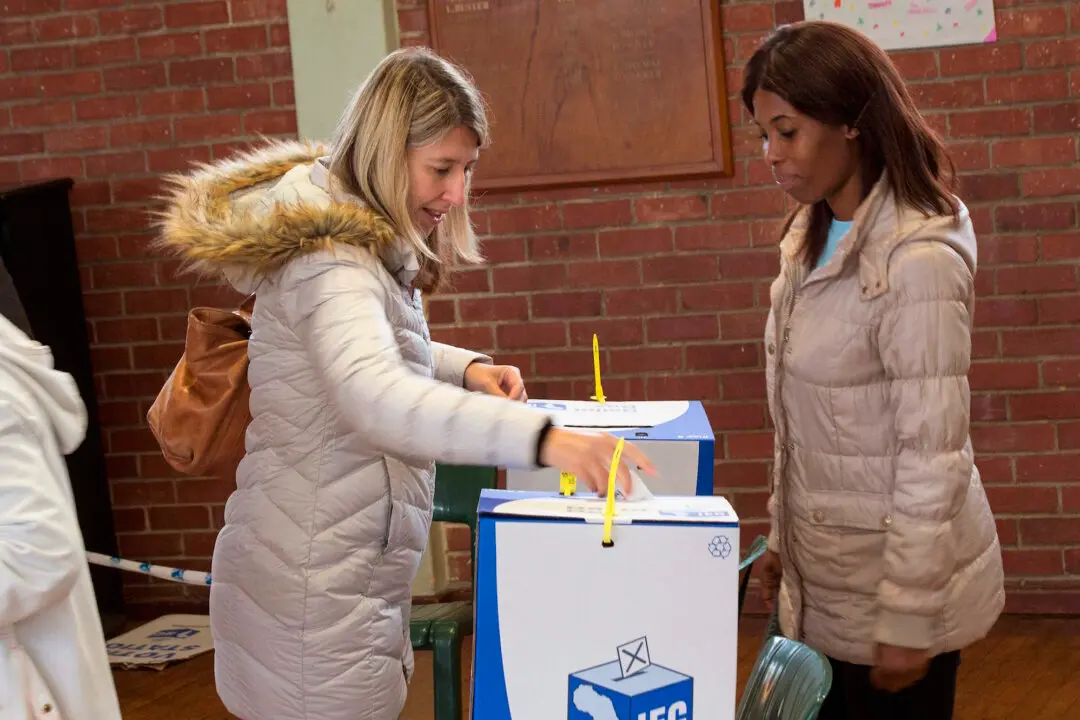JOHANNESBURG—South Africa’s two major political parties, the African National Congress (ANC) and the Democratic Alliance (DA), bled votes to the left and right, respectively, after a May 8 election that many analysts had described as the most important since the country’s first multiracial vote in 1994.
President Cyril Ramaphosa’s ANC dropped below 60 percent for the first time, but at 57 percent put in a relatively strong showing, following Ramaphosa’s efforts over the past year to reform the government.





